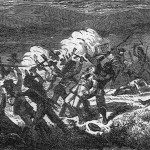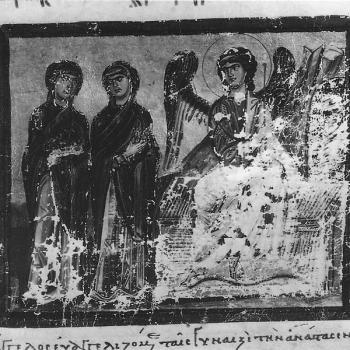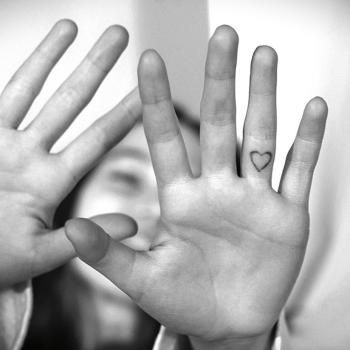In the song "I Believe" from The Book of Mormon: The Musical, the character Elder Price belts out a variety of propositions rooted in Mormon doctrine and history, from the mainstream to the esoteric. The punch line to all of these is, "A Mormon just believes," underscoring what the audience sees as Mormons' laughable faith in all sorts of unscientific and irrational propositions.
This depiction of Mormons as naïve or ridiculous because their religious beliefs are not founded in objectively verifiable evidence also characterizes recent criticisms of Mitt Romney ("A Vote for Romney Is a Vote for the LDS Church" and its follow-up, "A President's Faith Matters: An Interview with Warren Cole Smith"). In these articles, Warren Cole Smith argued that Romney's—and presumably Jon Huntsman's—need to address the "false and dangerous" beliefs of Mormonism in a speech will place him in a Catch-22:
Romney's problem will be that if he really believes what the Mormon Church believes, he dares not make that speech. The American people will say, "Really? Are you kidding me?" Or, if he makes "The Speech" and says he doesn't believe what the Mormon Church teaches, fellow Mormons will feel betrayed and even those who have trouble with the Mormon Church will nonetheless wonder about a man who can't stand up for his own. The bottom line: I don't see how he can square this circle.
Smith's square-the-circle scenario is symptomatic of a line of thinking that has been much in circulation lately: How can a presidential candidate be a smart, competent person if he or she belongs to a religious tradition containing wacky beliefs?
The problem with such arguments is that they ignore the fact that nearly all religious traditions—and certainly all of the great world religions including Judaism, Catholicism, Protestant Christianity, Islam, and Buddhism—make major claims that cannot be verified through scientific or historical evidence. If it's your religion, it's a miracle; if it's someone else's, it's outlandish.
Suppose CNN were to report today that a 15-year-old unmarried teenager in San Antonio, Texas, claimed to have become pregnant without having sex? That a man in Carlsbad, California, could die and come back to life after three days? These fantastic claims underlie the Christmas and Easter Christian observances, but most people would agree that a Christian's belief in the virgin birth or resurrection does not automatically make him or her mentally unhinged. The founding narratives of Mormonism, such as Joseph Smith's vision and the origins of the Book of Mormon, belong in the same category of miraculous claims around which larger religious traditions grow.
Hence, selecting those elements of the Mormon tradition that may strike a critic as most idiosyncratic or odious and using them to predict how a political candidate will discharge his or her duties seems not only unfair, but also illogical. For instance, in recent articles Warren Cole Smith has argued, "If the beliefs are false, then the behavior will eventually—but inevitably—be warped." Certainly it would be unfair of me to judge a Christian politician solely by various elements of the Christian tradition that I found problematic?
For example, suppose I was trying to evaluate how Michele Bachmann's belief in the Bible would affect her decisions as president by citing 1 Samuel 15:1-3, where the prophet Samuel, speaking for God, tells King Saul to "attack the Amalekites and totally destroy all that belongs to them. Do not spare them; put to death men and women, children and infants, cattle and sheep, camels and donkeys."
This is genocidal craziness, but I can see how Michele Bachmann's expressed reliance on the Bible as God's word and as a spiritual guide for everyday living does not necessarily mean that she actually endorses genocide in her policy positions or moral worldview.
Giving people the benefit of the doubt and allowing them to give their own account of how their religious beliefs inform their values and actions seems like a reasonable thing to do in a 21st-century America that is supposed to embrace religious tolerance. So why does it seem so popular in today's public forums to sensationalize, demonize, or ridicule Mormonism in a way that would never, ever be acceptable if the word "Mormons" were replaced with "Jews" or "Muslims"?




